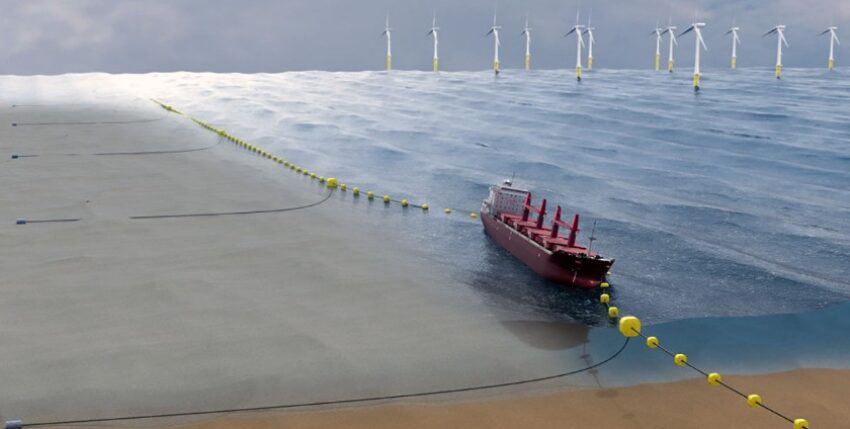The Maritime Research Institute of the Netherlands (MARIN) has tested three innovative barriers to prevent collisions between ships and wind turbines.
This test was prompted by the incident involving the Julietta D on 31 January 2022, when this drifting ship first collided with a tanker and then with a transformer platform and a wind turbine foundation of the Hollandse Kust Zuid wind farm currently under construction. The installed wind turbines could fall onto a ship in the event of a collision, posing a major risk to the crew, passengers, the ship itself and the environment.
If there are an estimated 2500 wind turbines in the North Sea by the end of 2030, the probability of a collision will increase. Of the 80 or so accidents or incidents that occur on average in the North Sea each year, collisions with wind turbines would account for around 2%. That is up to 3 incidents. There are known ways of avoiding these accidents. Drifting ships drop anchor, an emergency tug is activated and the rest of the shipping is diverted. The innovation would be to develop "guard rails at sea".
In a workshop on 23 February, a group of twenty experts from the industry and MARIN developed three innovative approaches: The first concept involves a series of buoys on the surface that are attached with towed anchors. The second concept consists of an intelligent suspension net between fixed masts and the third of an anchored underwater hook line designed to catch the anchor of the drifting ship.
Using scale models of all three solutions, tests were carried out in its offshore basin on 17 and 18 March to determine whether the barriers were capable of doing the job. It was found that all three concepts would be capable of intercepting a ship. The different concepts and all test results will be shared as part of an open innovation project to enable further development of the most promising concepts. The initiative has also aroused great interest internationally.
Source: Marin, own research










